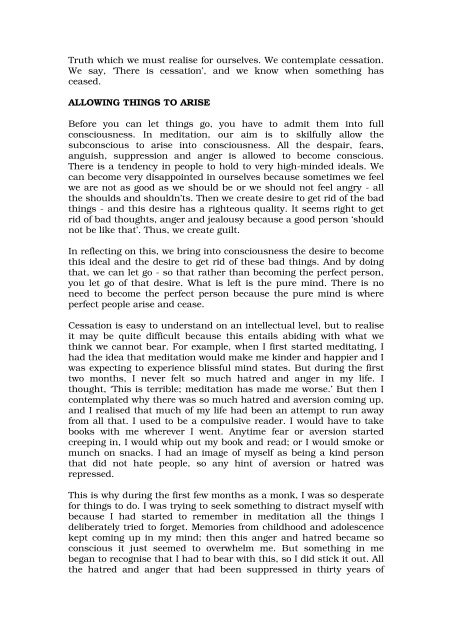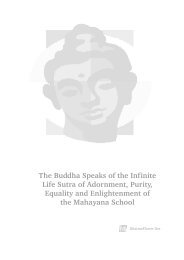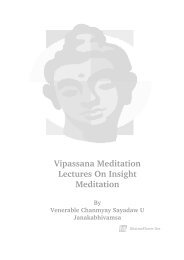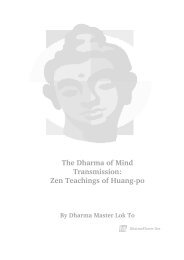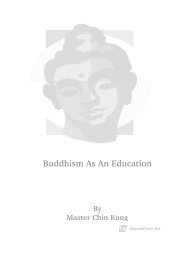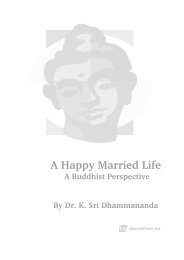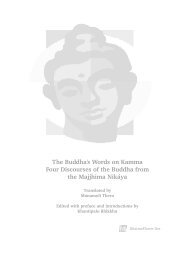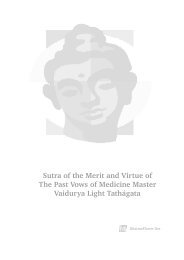THE FOUR NOBLE TRUTHS By Ajahn Sumedho - DharmaFlower.Net
THE FOUR NOBLE TRUTHS By Ajahn Sumedho - DharmaFlower.Net
THE FOUR NOBLE TRUTHS By Ajahn Sumedho - DharmaFlower.Net
Create successful ePaper yourself
Turn your PDF publications into a flip-book with our unique Google optimized e-Paper software.
Truth which we must realise for ourselves. We contemplate cessation.We say, ‘There is cessation’, and we know when something hasceased.ALLOWING THINGS TO ARISEBefore you can let things go, you have to admit them into fullconsciousness. In meditation, our aim is to skilfully allow thesubconscious to arise into consciousness. All the despair, fears,anguish, suppression and anger is allowed to become conscious.There is a tendency in people to hold to very high-minded ideals. Wecan become very disappointed in ourselves because sometimes we feelwe are not as good as we should be or we should not feel angry - allthe shoulds and shouldn’ts. Then we create desire to get rid of the badthings - and this desire has a righteous quality. It seems right to getrid of bad thoughts, anger and jealousy because a good person ‘shouldnot be like that’. Thus, we create guilt.In reflecting on this, we bring into consciousness the desire to becomethis ideal and the desire to get rid of these bad things. And by doingthat, we can let go - so that rather than becoming the perfect person,you let go of that desire. What is left is the pure mind. There is noneed to become the perfect person because the pure mind is whereperfect people arise and cease.Cessation is easy to understand on an intellectual level, but to realiseit may be quite difficult because this entails abiding with what wethink we cannot bear. For example, when I first started meditating, Ihad the idea that meditation would make me kinder and happier and Iwas expecting to experience blissful mind states. But during the firsttwo months, I never felt so much hatred and anger in my life. Ithought, ‘This is terrible; meditation has made me worse.’ But then Icontemplated why there was so much hatred and aversion coming up,and I realised that much of my life had been an attempt to run awayfrom all that. I used to be a compulsive reader. I would have to takebooks with me wherever I went. Anytime fear or aversion startedcreeping in, I would whip out my book and read; or I would smoke ormunch on snacks. I had an image of myself as being a kind personthat did not hate people, so any hint of aversion or hatred wasrepressed.This is why during the first few months as a monk, I was so desperatefor things to do. I was trying to seek something to distract myself withbecause I had started to remember in meditation all the things Ideliberately tried to forget. Memories from childhood and adolescencekept coming up in my mind; then this anger and hatred became soconscious it just seemed to overwhelm me. But something in mebegan to recognise that I had to bear with this, so I did stick it out. Allthe hatred and anger that had been suppressed in thirty years of


